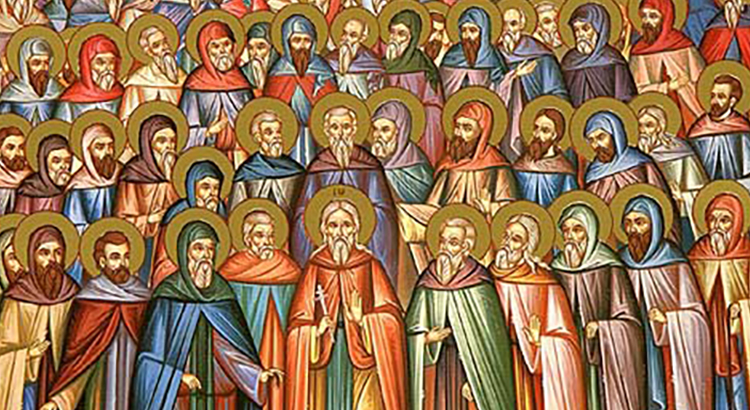Memory of the Saints and the Prophets
Reading of the Word of God
Alleluia, alleluia, alleluia
You are a chosen race,
a royal priesthood, a holy nation,
a people acquired by God
to proclaim his marvellous works.
Alleluia, alleluia, alleluia
Luke 17,11-19
Now it happened that on the way to Jerusalem he was travelling in the borderlands of Samaria and Galilee. As he entered one of the villages, ten men suffering from a virulent skin-disease came to meet him. They stood some way off and called to him, 'Jesus! Master! Take pity on us.' When he saw them he said, 'Go and show yourselves to the priests.' Now as they were going away they were cleansed. Finding himself cured, one of them turned back praising God at the top of his voice and threw himself prostrate at the feet of Jesus and thanked him. The man was a Samaritan. This led Jesus to say, 'Were not all ten made clean? The other nine, where are they? It seems that no one has come back to give praise to God, except this foreigner.' And he said to the man, 'Stand up and go on your way. Your faith has saved you.'
Alleluia, alleluia, alleluia
You will be holy,
because I am holy, thus says the Lord.
Alleluia, alleluia, alleluia
This is the second account in Luke of the healing of leprosy (the first was in Lk 5:12-14). This time, unlike the previous one, the lepers stop at a distance and cry out their need for healing. It is a cry similar to that which rises from many distant lands, begging help and support. Unfortunately, so often this cry remains unheard. We can connect it to the communal prayer that Christians raise to God for themselves and for the world. In fact, there is a sort of harmony between the cry of the poor and the prayer of the Church. In both cases, the poor and the disciples find themselves united in praying for a world of justice and peace, of brotherhood and love. Jesus looks at them, and orders them to go and present themselves to the priests. Along the way, all ten are healed of their leprosy. Only one, however, returns and thanks the Lord; and he is a Samaritan, a stranger, and a believer of a faith different from the Jews. Once again, the evangelist reports a stranger as an exemplary disciple. This latter, noticing that he was cured, feels the need to thank, to express all his gratitude to the one who had cured him. And Jesus looks with pleasure upon this Samaritan, and with sadness on all the others. Yes, the Lord needs to be thanked. Surely not because he needs it, but because it is beneficial for us to understand that we owe all to the Lord: what we are and the gifts we have come from God. And blessed are we, if like that leper, we know how to return to the feet of the Lord to thank him for the many gifts he has bestowed on us.
